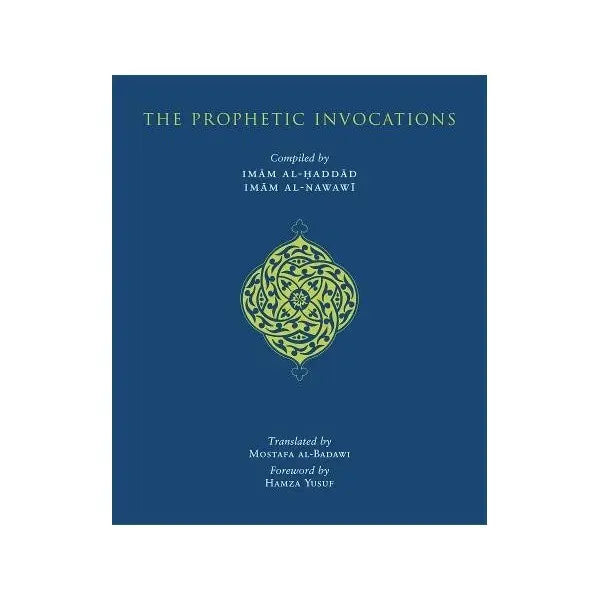About The Product
The Prophetic Invocations (CD & Book) Imam Abdallah ibn Alawi al-Haddad The bestselling collection of daily adhkar (invocations) compiled by Imam Al-Haddad. For each prayer, the original Arabic text, English translation, transliteration, and commentary are provided. The CD is read and performed by Ahbab Almustafa. Imam Al-Ghazali (may God's mercy be on him) wrote in his book The Beginning of Guidance: You should not neglect your time or use it haphazardly; on the contrary, you should bring yourself to account, structure your litanies and other practices during each day and night, and assign to each period a fixed and specific function.
This is how to bring out the spiritual blessing (baraka) in each period. But if you leave yourself adrift, aimlessly wandering as cattle do, not knowing how to occupy yourself at every moment, your time will be lost. It is nothing other than your life, and your life is the capital that you make use of to reach perpetual felicity in the proximity of God the Exalted. Each of your breaths is a priceless jewel, since each of them is irreplaceable and, once gone, can never be retrieved.
Do not be like the deceived fools who are joyous because each day their wealth increases while their life shortens. What good is an increase in wealth when life grows ever shorter? Therefore be joyous only for an increase in knowledge or in good works, for they are your two companions who will accompany you in your grave when your family, wealth, children and friends stay behind.
About The Author
Imam Abd Allah ibn Alawi al-Haddad was born in 1634 CE (1044 Hijri). He lived his entire life in the town of Tarim in Yemen’s Valley of Hadramawt and died there in 1720 CE (1132 Hijri). In Islamic history, he was considered one of the great Sufi sages. He was an adherent to the Ashari Sunni Creed of Faith (Aqeedah), while in Islamic jurisprudence (Fiqh), he was a Shafi'i.
He lived at Tarim in the Hadramaut valley between Yemen and Oman, and is widely held to have been the ‘renewer’ of the twelfth Islamic century. A direct descendant of the Prophet, his sanctity and direct experience of God are clearly reflected in his writings, which include several books, a collection of Sufi letters, and a volume of mystical poetry. He spent most of his life in Kenya and Saudi Arabia where he taught Islamic jurisprudence and classical Sufism according to the order (tariqa) of the Ba'Alawi sayids.
In spite of being a major source of reference among the Sunni Muslims (especially among Sufis), only recently have his books began to receive attention and publication in the English-speaking world. Their appeal lies in the concise way in which the essential pillars of Islamic belief, practice, and spirituality have been streamlined and explained efficiently enough for the modern reader. Examples of such works are The Book of Assistance, The Lives of Man, and Knowledge and Wisdom.
About Translator:
Dr. Mostafa Badawi was born in Cairo in 1948. He graduated from Cairo University Medical School in 1971 and thereafter completed his postgraduate training in the United Kingdom in 1985. He has been practicing as a consultant psychiatrist since then. Dr. al-Badawi has authored several books in English, including Man and the Universe: An Islamic Perspective, The Prophetic Invocations, and Sufi Sage of Arabia: Biography of Imam al-Haddad.
He is a distinguished authority on the history and teachings of the Ba 'Alawi Sayyids. He studied under many shaykhs, foremost among whom is the late Habib Ahmad Mashur al-Haddad.
Dr. Badawi is one of the leading contemporary translators of Islamic books from Arabic to English and has authored several books in Arabic. In addition, he has translated from the original Arabic into English several of Imam Abdallah ibn Alawi al-Haddad's works, including The Book of Assistance, The Lives of Man, Gifts for the Seeker, Wisdom and Knowledge, Good Manners, and Mutual Reminding. He also translated into English Habib Ahmad al-Haddad's Key to the Garden as well as Shaykh Abd al-Khaliq ash-Shabrawi's Degrees of the Soul.






















